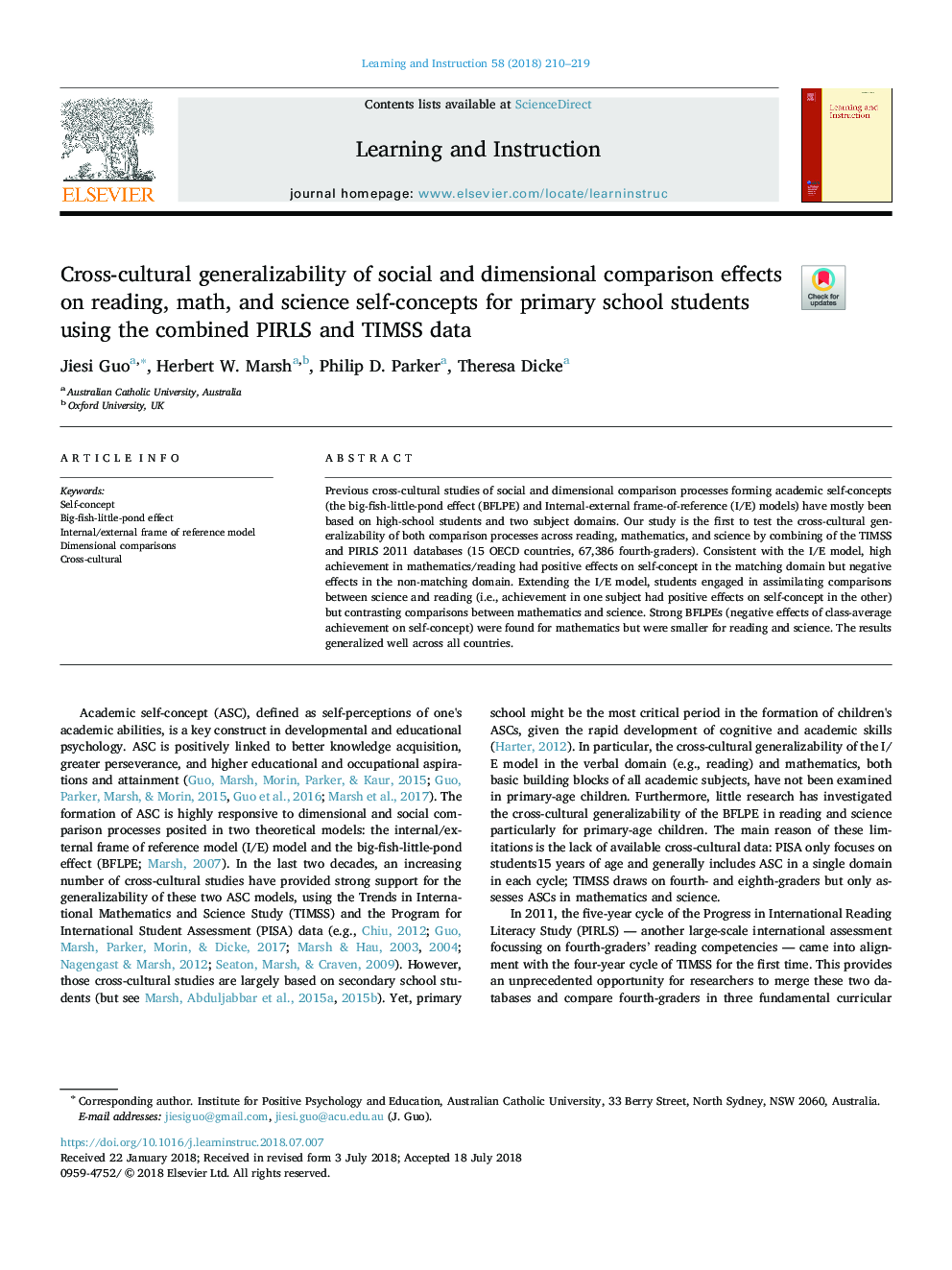| Article ID | Journal | Published Year | Pages | File Type |
|---|---|---|---|---|
| 6845436 | Learning and Instruction | 2018 | 10 Pages |
Abstract
Previous cross-cultural studies of social and dimensional comparison processes forming academic self-concepts (the big-fish-little-pond effect (BFLPE) and Internal-external frame-of-reference (I/E) models) have mostly been based on high-school students and two subject domains. Our study is the first to test the cross-cultural generalizability of both comparison processes across reading, mathematics, and science by combining of the TIMSS and PIRLS 2011 databases (15 OECD countries, 67,386 fourth-graders). Consistent with the I/E model, high achievement in mathematics/reading had positive effects on self-concept in the matching domain but negative effects in the non-matching domain. Extending the I/E model, students engaged in assimilating comparisons between science and reading (i.e., achievement in one subject had positive effects on self-concept in the other) but contrasting comparisons between mathematics and science. Strong BFLPEs (negative effects of class-average achievement on self-concept) were found for mathematics but were smaller for reading and science. The results generalized well across all countries.
Keywords
Related Topics
Social Sciences and Humanities
Psychology
Developmental and Educational Psychology
Authors
Jiesi Guo, Herbert W. Marsh, Philip D. Parker, Theresa Dicke,
